Deepen your relationship with the land.
3 To 7 Day Field Courses on Human-Landscape Relationships, Ecology, & Ethnobotany
Dates: Courses offered May through August. Jump to dates.
Ages: 18+. Groups typically have a wide age range.
Group Size: 6-10 students.
Housing & Food: Participants will car-camp in a car-accessible group campsite, bringing their own tent. All meals are provided, with meals based on organic food from our educational farm. Participants assist our camp cook to prepare food.
Tuition: Starting from $225. Jump to sliding scales. Groundwork uses a sliding scale to determine tuition. More about our sliding scale here.
More Logistics Information: Read the logistics packet here.
Program Overview
On a single day in Western Colorado, you can experience a snow storm while gathering mushrooms near treeline and blistering heat while harvesting pine nuts in the piñon/juniper forests down in the desert a few miles away.
Camped on the slopes of the Western Colorado’s tablelands, you’ll spend a week learning to step into the relationships that people have cultivated with these ecosystems over thousands of years. Throughout the course, we’ll learn to read the landscape: where water hides, where soil and rock types affect the plants, how slope and aspect predict which plants will grow in a given place. Around the campfire at night, we’ll discuss the native and settler histories of the land, reflecting on the U.S. government’s campaigns against the Utes in present-day Colorado and Utah. Through this lens and a newfound relationship with this landscape, we’ll begin to imagine what a different future might look like.
From delicious wild mushrooms growing symbiotically with their chosen tree companions to acorns in maze-like oak forests, from herb-filled aspen groves to wild carrots historically planted and periodically tended in open sage flats, this place is full of food and medicine. Each day, we learn to identify new edible and medicinal plants, learning the fundamentals of botany, and identifying plants by families so you gain a solid grasp of the entire ecology, not just individual species.
Whether you’re new to Colorado or have lived here your whole life, this course has something to offer you. Join us this year and deepen your relationship with the place where you live.
Program Highlights
- Experience the ecology of the Rockies and Western Slope by exploring the transitions of one ecosystem to another through the altitude gradient from high desert shrubland upwards to the edge of the alpine mountains.
- Develop your skills of reading landscapes through understanding the different ecotypes according to altitude, geology, hydrology, vegetation, slope, and more.
- Study the ethnobotany and ethnohistory of the Western Slope and how the past and present history of the Intermountain West influences the landscape and our relationship with it today.
- Gain an understanding of historical and modern anthropogenic landscapes in Colorado and how we all participate and co-create the ecologies we live in.
- Learn practices of place-making to understand ourselves in relation to our place and how we are all a part of our local ecologies.
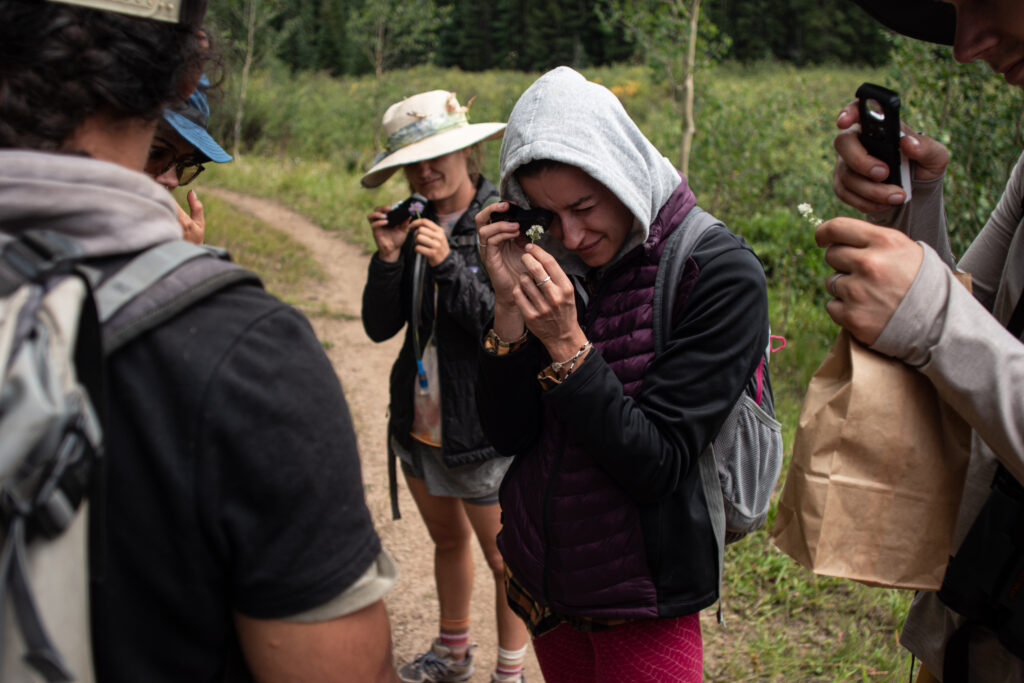
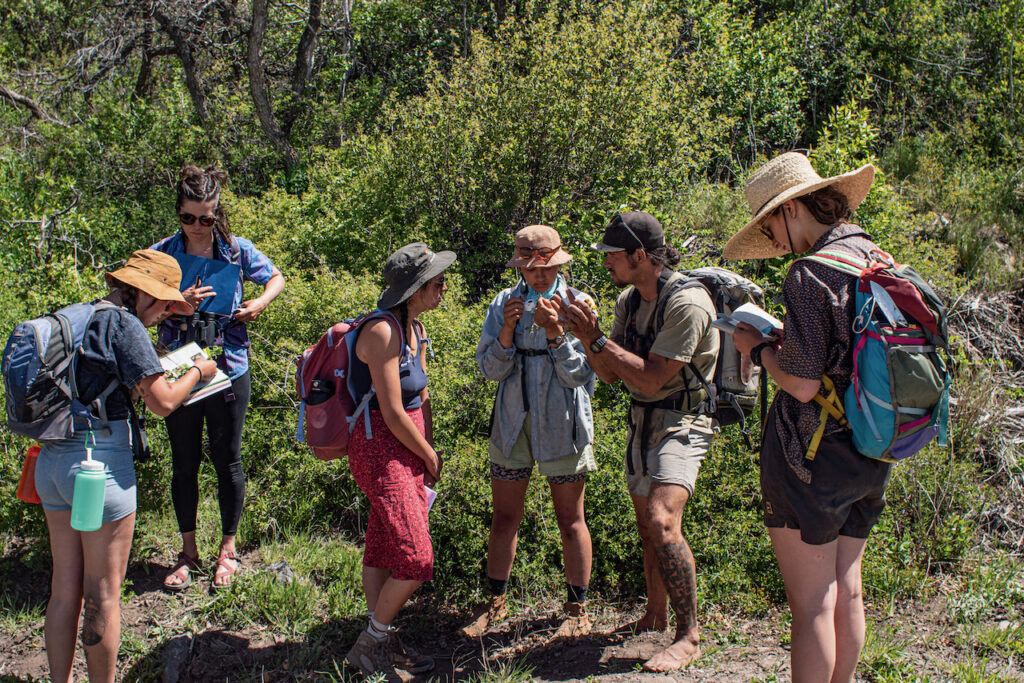
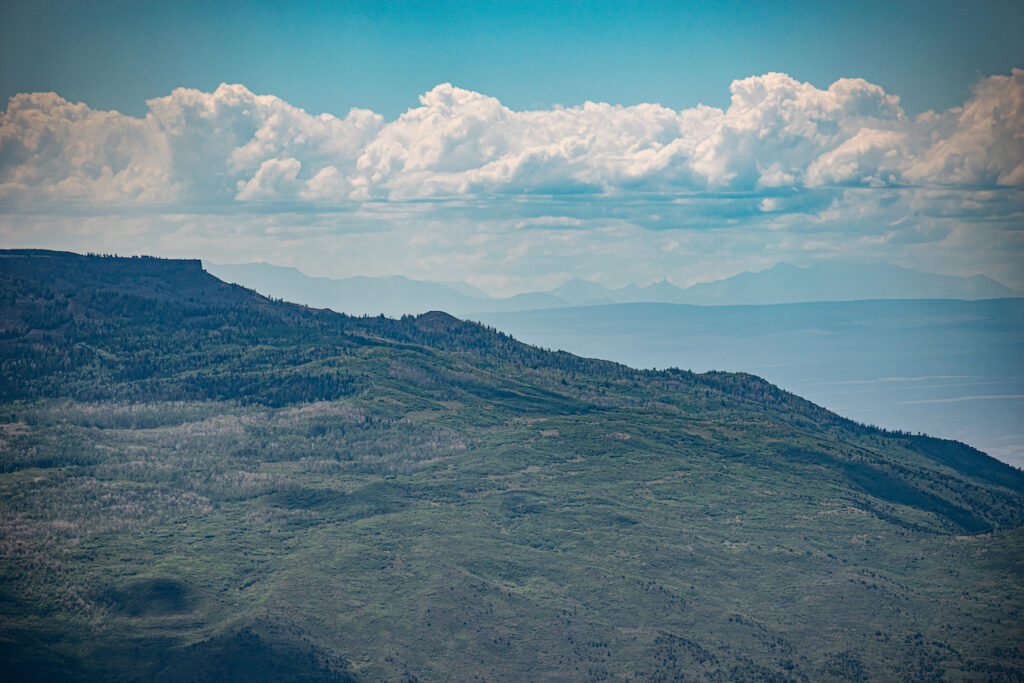
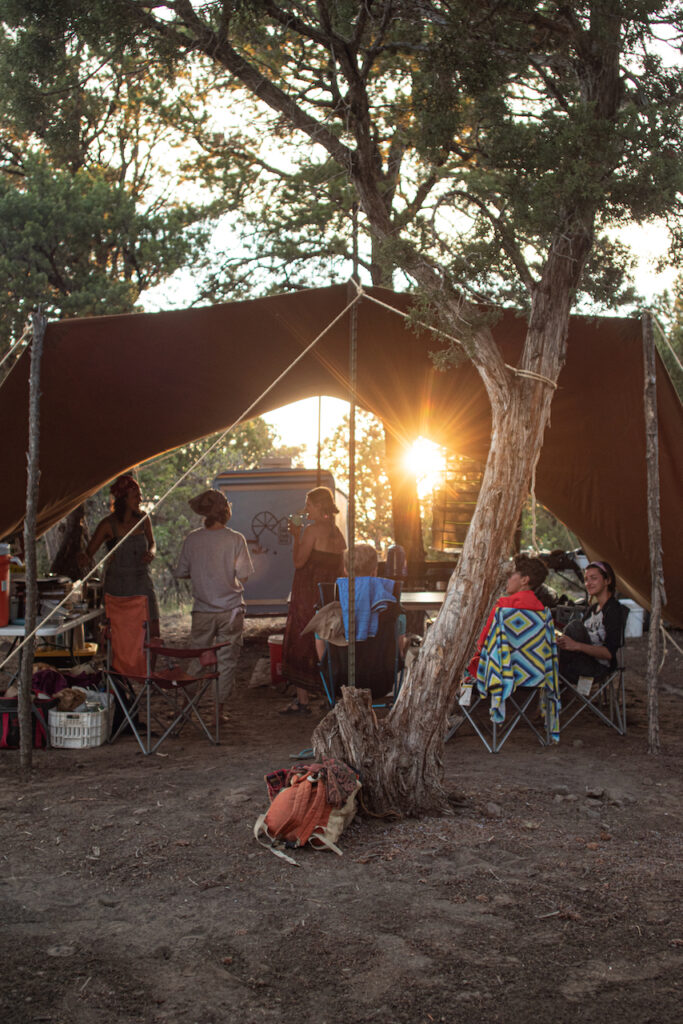
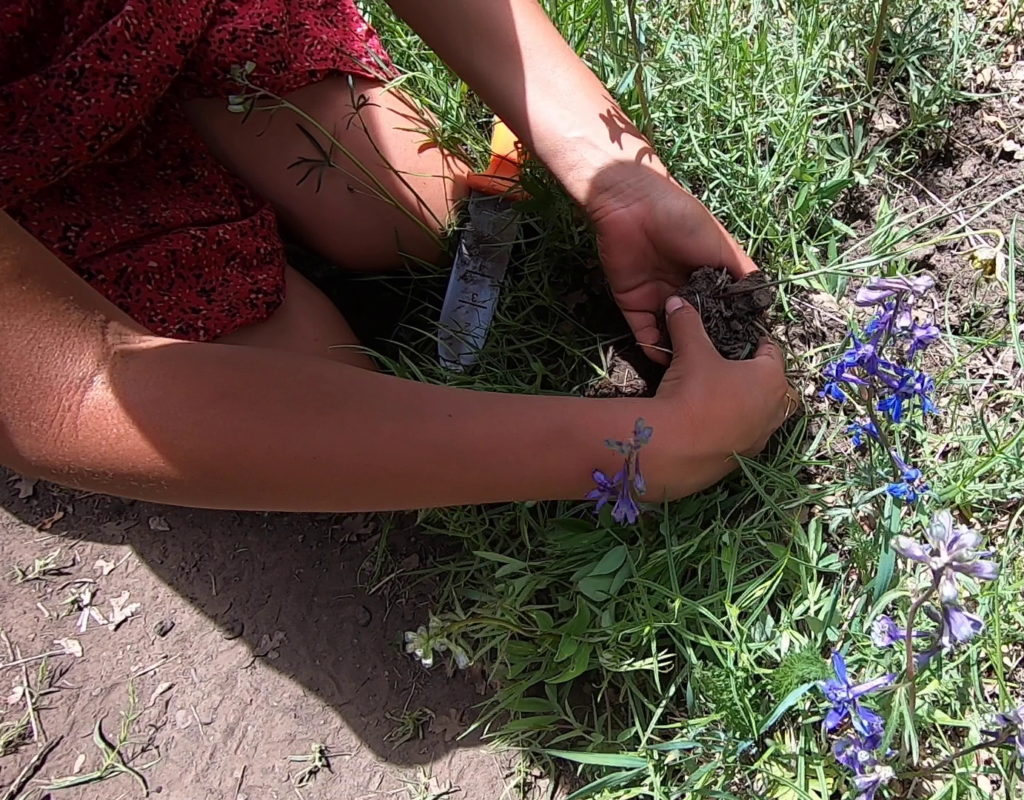
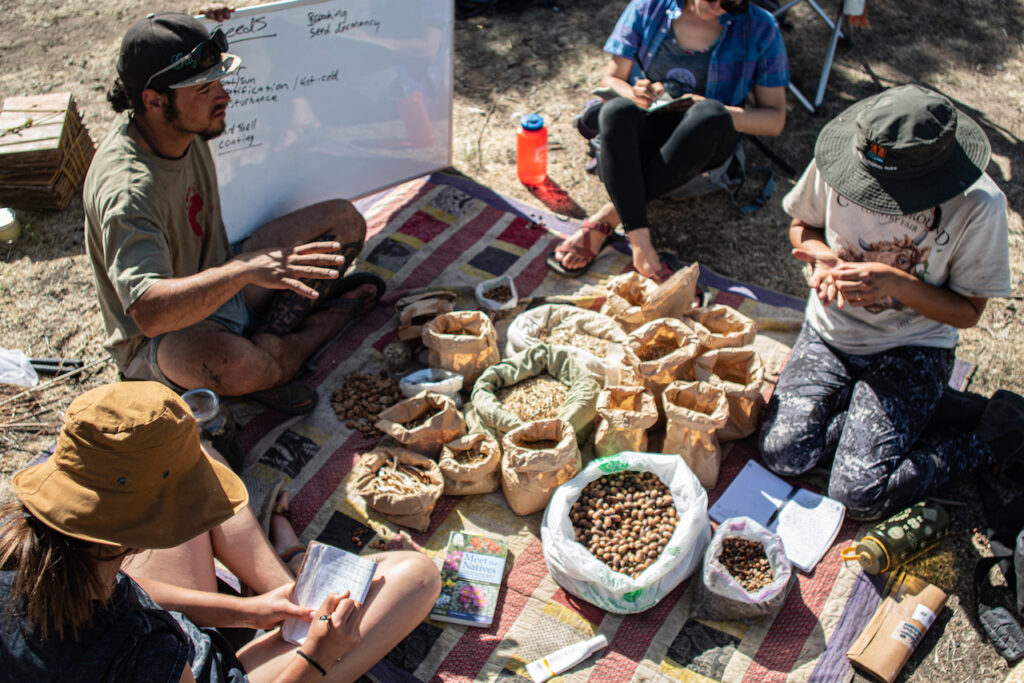
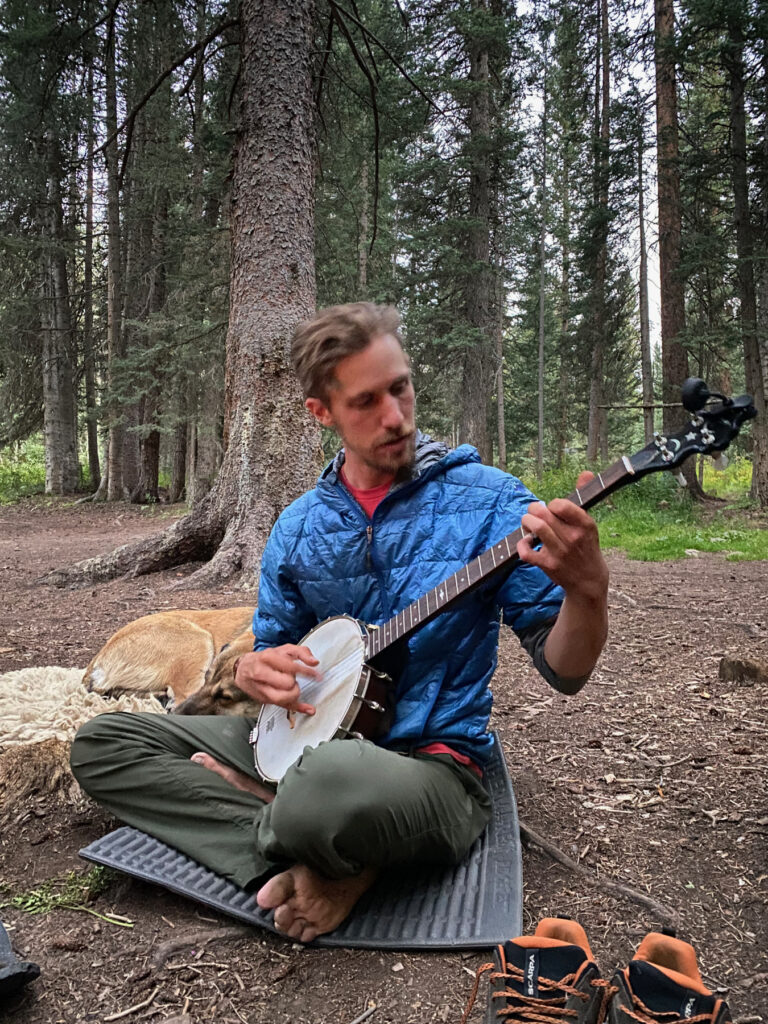
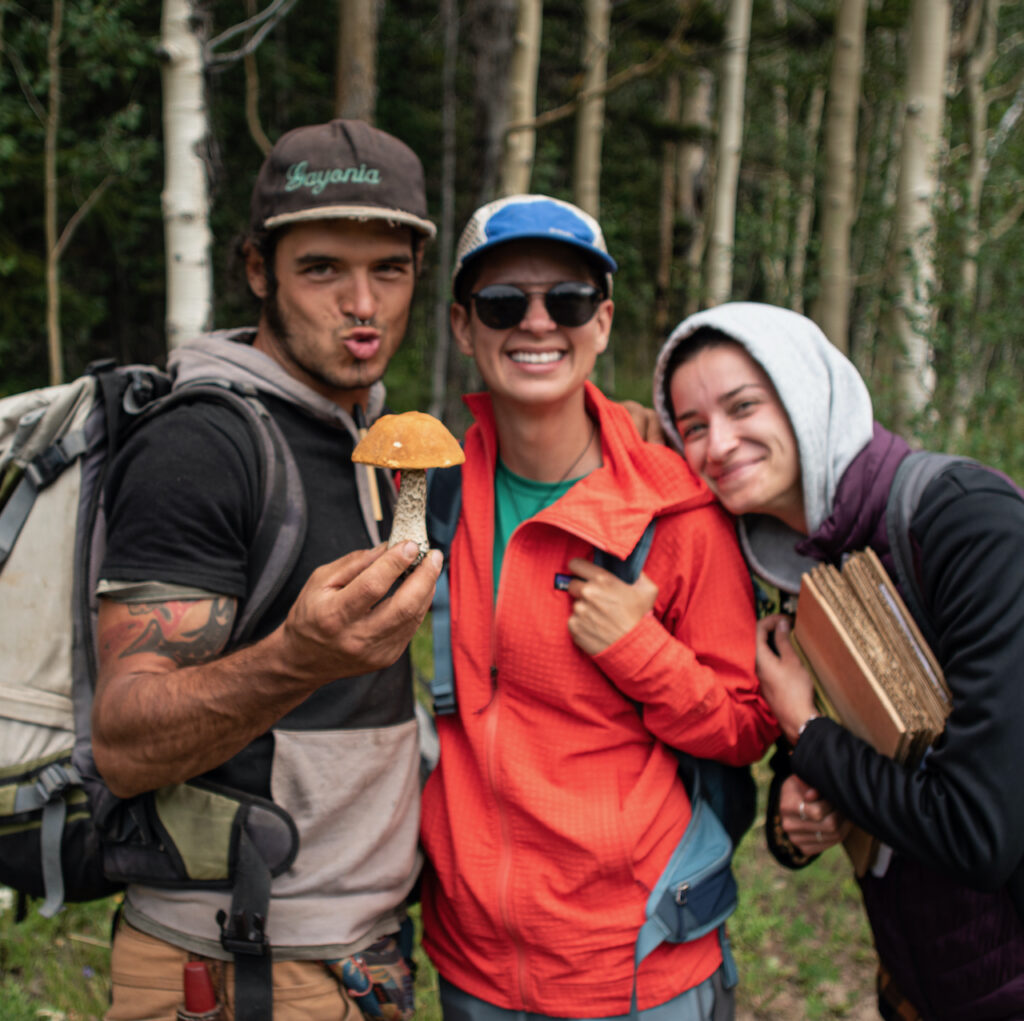
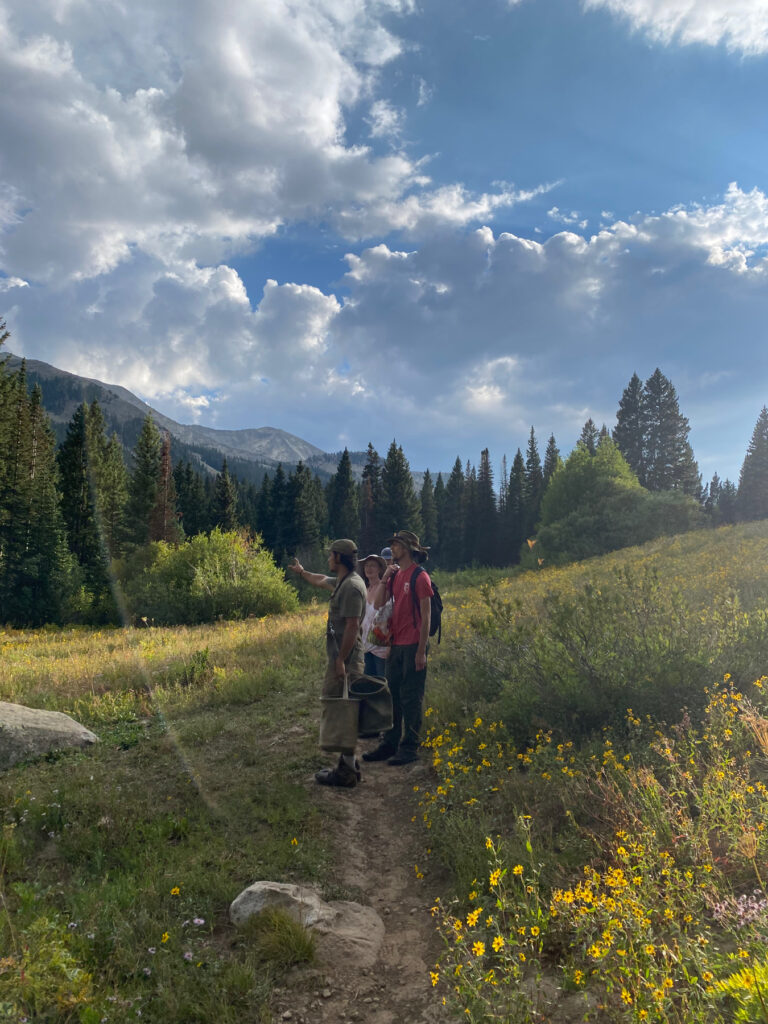
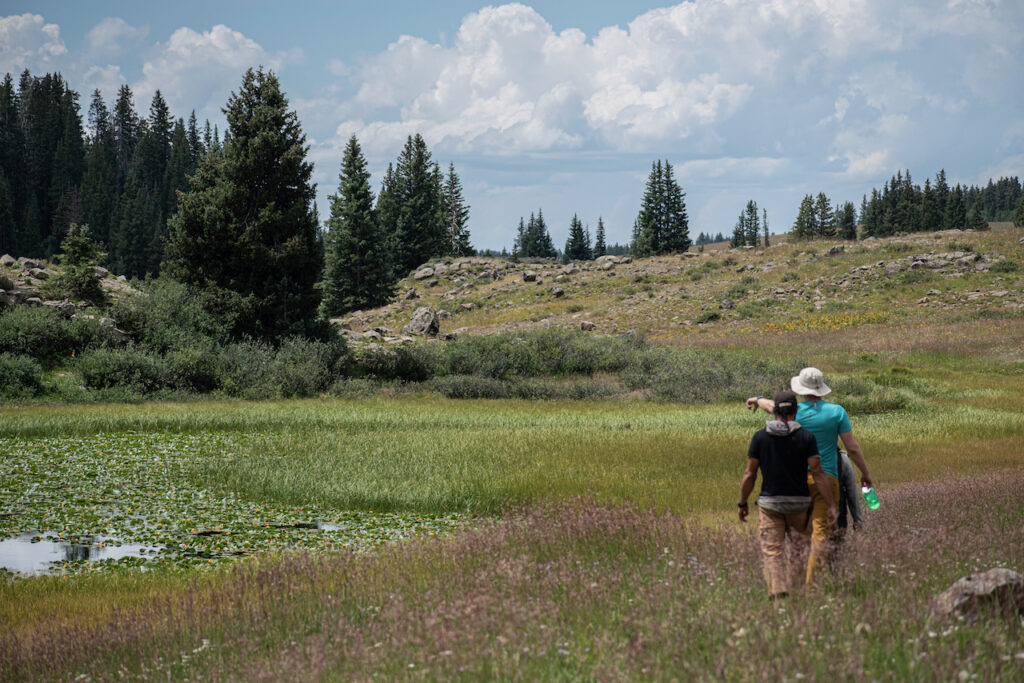
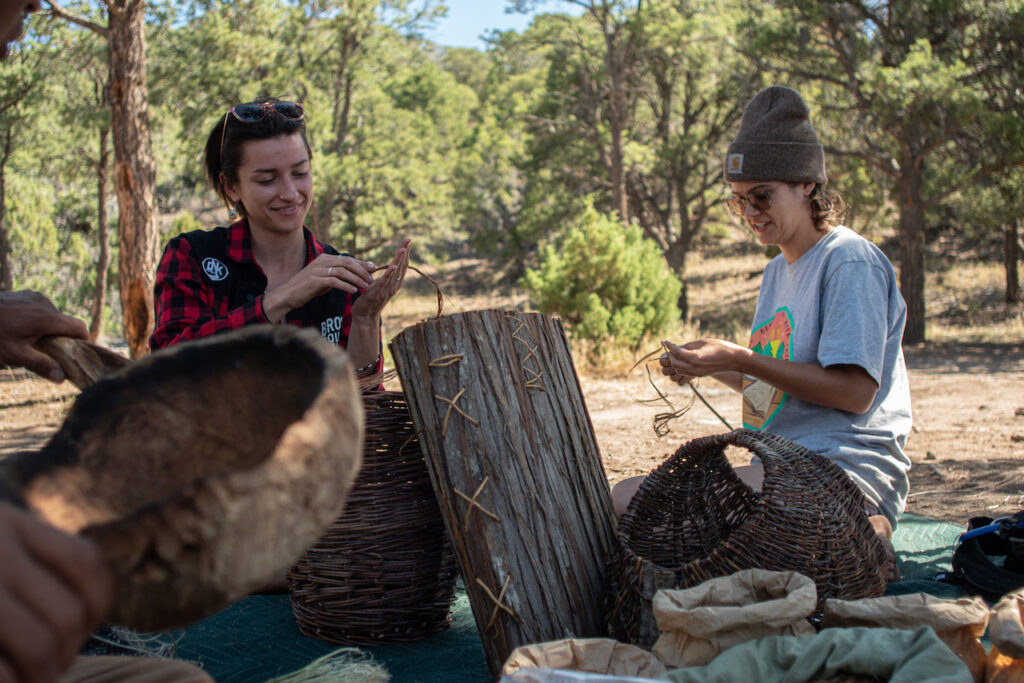
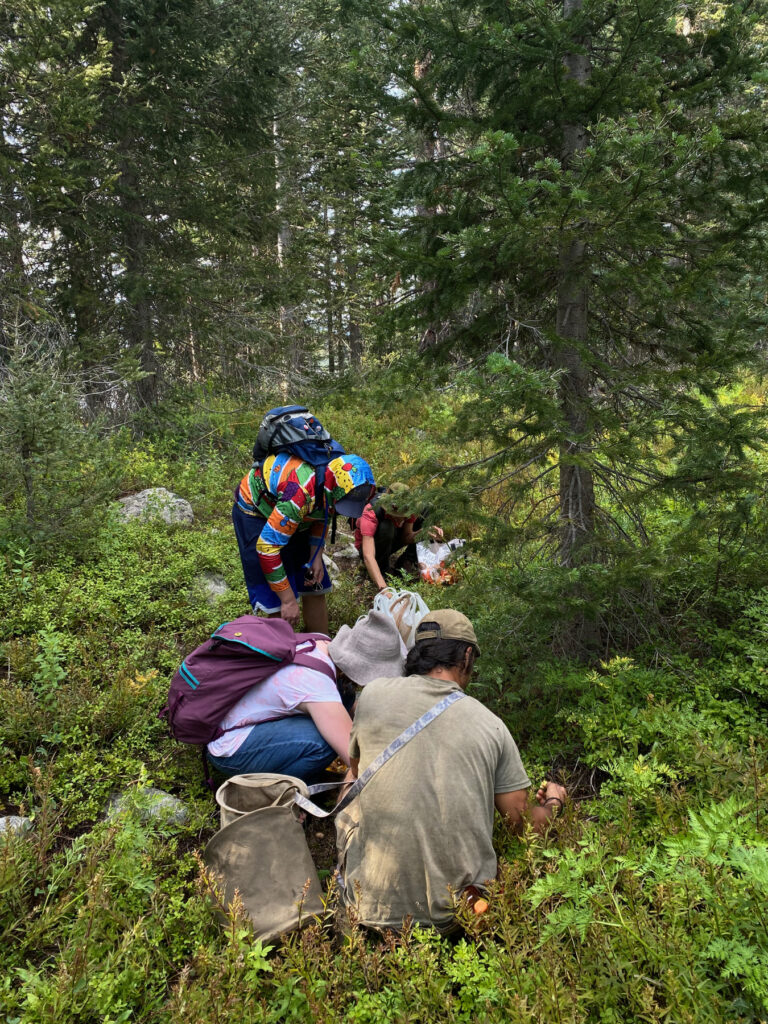
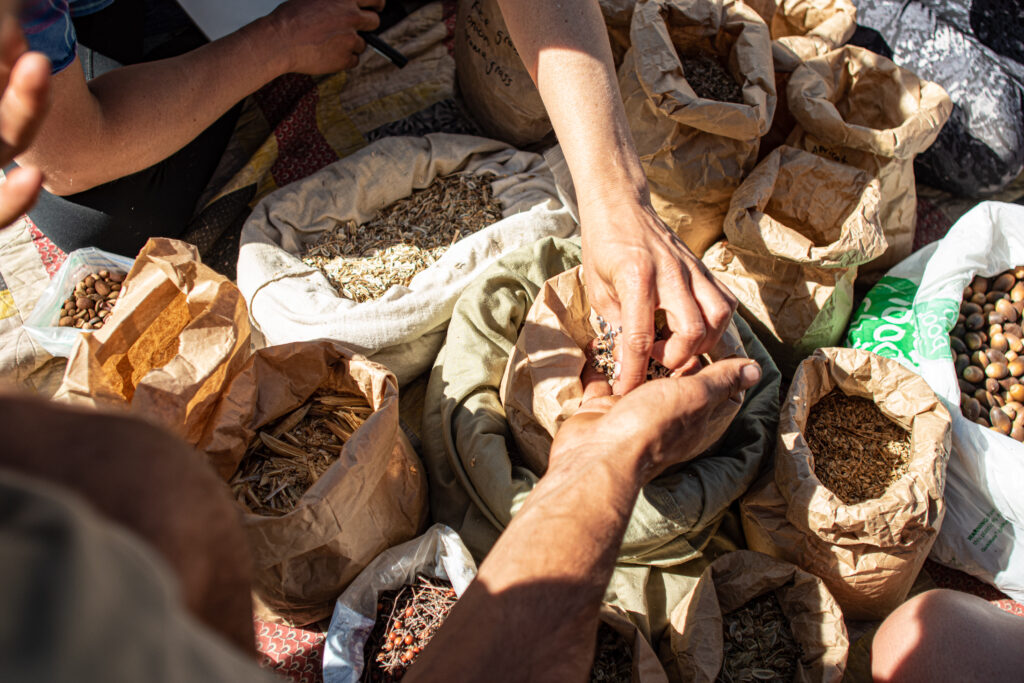
Course Dates:
| Dates | Location | Focus | Instructor | |
|---|---|---|---|---|
| May 10-12, 2024 (3 days) | Paonia, Colorado | Spring riparian ecology & plants, topics in critical ethnobotany, wild-tending for ecological & cultural health | Kelly Moody |
Info Packet Register |
| May 23-26, 2024 (4 days) | Uncompahgre Plateau, near Grand Junction, CO | Mid-elevation elevation piñon/juniper ecology study, desert ethnobotany basics, topics in critical ethnobotany, wild-tending for ecological and cultural health | Kelly Moody |
Info Packet Register |
| May 30-June 5, 2024 (7 days) | Grand Mesa National Forest, near Grand Junction, CO | Mid-elevation elevation piñon/juniper ecology study, desert ethnobotany basics, topics in critical ethnobotany, wild-tending for ecological and cultural health | Kelly Moody |
Info Packet Register |
August 2-8, 2024 (7 days) | Grand Mesa National Forest, near Grand Junction, CO | High elevation plants & ecology, ecological awareness, wild-tending for ecological and cultural health, wild edible and medicinal plant identification, wild foods,wild edible and medicinal plant identification, edible mushrooms | Kelly Moody |
Info Packet Register |
| August 23–26, 2024 (4 days) | Grand Mesa National Forest, near Grand Junction, CO | High elevation plants & ecology, ecological awareness, wild-tending for ecological and cultural health, wild edible and medicinal plant identification, wild foods, wild edible and medicinal plant identification, edible mushrooms | Nikki Hill |
Info Packet Register |
| August 30–September 2, 2024 (4 days) | Grand Mesa National Forest, near Grand Junction, CO | High elevation plants & ecology, ecological awareness, wild-tending for ecological and cultural health, wild edible and medicinal plant identification, wild foods, wild edible and medicinal plant identification, edible mushrooms | Nikki Hill |
Info Packet Register |
Course Tuition: 7-Day Courses
Household Income:
Program Tuition:
Course Tuition: 4-Day Grand Mesa Courses
Household Income:
Program Tuition:
Course Tuition: 3-Day Paonia Riparian Ecology Courses
Household Income:
Program Tuition:
A Taste Of The Courses
Plants & Place Podcast: A Taste of Our Ecology Programs
In summer 2022, our instructor Gabe Crawford recorded a 4-episode podcast series on ethnobotany and human ecologies in the American West. It’s a great intro to the type of learning you can expect on our Human & Natural Ecologies of Colorado programs. The podcast is available on every podcast platform, or you can listen below!
![]()
![]()
Meet The Instructors
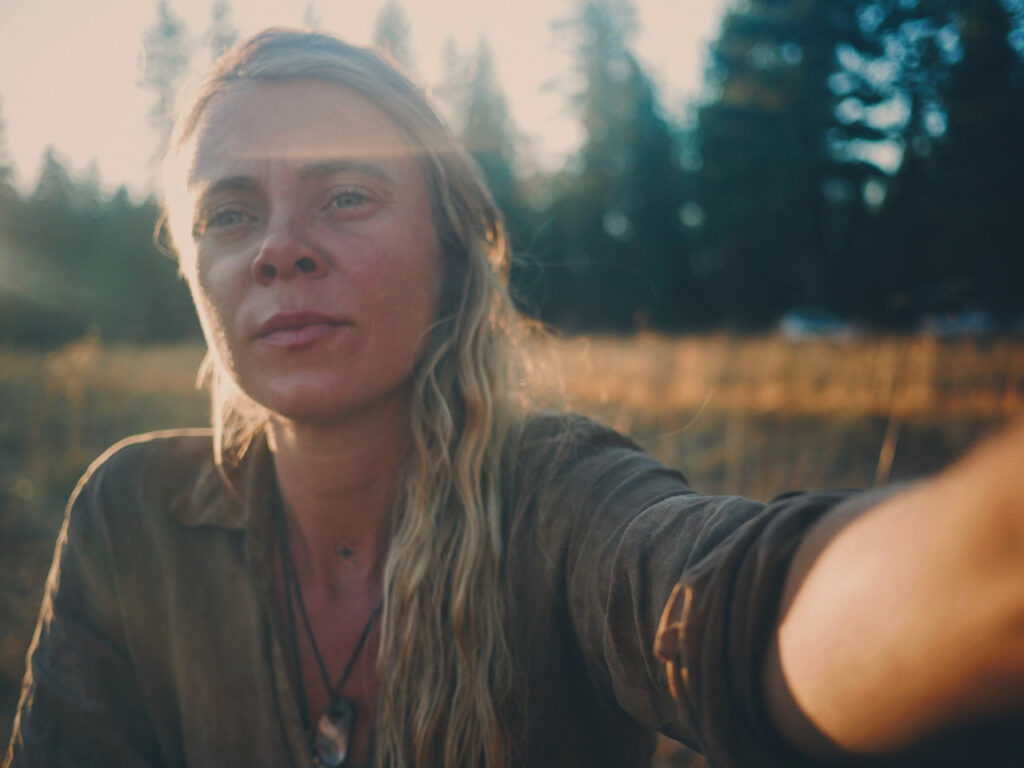
Kelly Moody
Kelly grew up in rural southern Virginia in tobacco country, working at her family’s nursery business. She earned a B.A. in Philosophy and Religious Studies, Anthropology at Christopher Newport University in Virginia in 2009, focusing on globalization of culture and land relationships, environmental ethics and ‘east-west’ comparative philosophies. After that she worked on and ran organic farms, studied with various herbalists, gardeners, permaculturists and ecologists from Vermont to Ohio, North Carolina, California, New Mexico and beyond. She has also spent countless hours in self-study working with plants on public land across the U.S. west. She is the main facilitator behind the Ground Shots Project and Podcast, a work that explores cross-ecological and societal intersections.
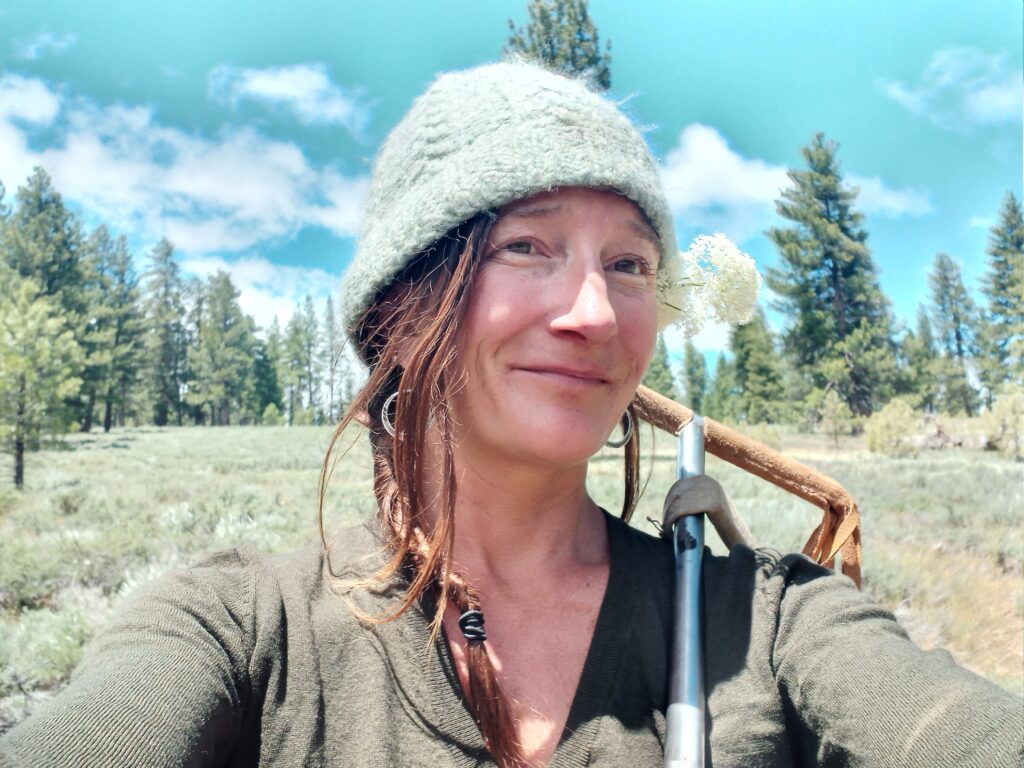
Nikki Hill
Nikki is a seasoned tumbleweed who has been engaged in an ongoing, experiential inquiry of the dynamic weavings of ecological relationships for the past 18 years. She can be found in a diversity of habitats throughout the Western U.S., from remote wild places and feral haunts to boardrooms and stakeholder halls where land management protocols are written. Nikki holds a bachelor’s degree in environmental science and botany and started this journey with a focus on ecosystem restoration. Disillusioned with a focus of eradication as healing, (where herbicides are utilized as the primary tool for restoration), she sought solace in fostering direct connection as a small scale farmer.
For the past nine years she has been living semi nomadically, gathering seeds and tending wild plants, with a focus on plants that benefit from or rely on human disturbance. Nikki’s inspiration for teaching comes from a reclaiming a sense of belonging unfolding curiosities that continue to inspire her include reclaiming the role of human seed bearers, cultural landscape awareness, beneficial disturbance theory, assisted plant migration and remembering the ultimate mystery and joy of this dance. Nikki is a certified Wilderness First Responder.